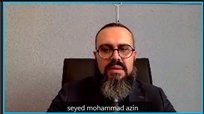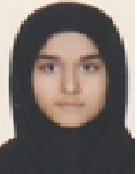Speakers
Seyed Mohammad Azin
Royan Institute for Reproductive Biomedicine,Tehran, Iran IranTitle: Legal and Ethical Milestones of “Random Human Nature” Principle
Abstract:
The accelerating progress of genetics and its wondrous practical benefits has surprised ethical and legal experts. This time, physical sciences surpass ethical and legal considerations and pioneers of genetic evolution all over the world; feel less concern about moral judgments. In this lecture, I suggest a criterion for monitoring genetic prenatal interventions which evaluates morality and legitimacy of what human does contrary to natural phenomenon of gestation. I call it “Random Human Nature Principle”. The principle is supported by at least three ethical milestones. First basis is prohibition of decision making instead of fetus. Fetus, though at least in its first stages of development, lacks enough capacity to be counted as human, has enough respect to have right of life. This involves the right to be born and there is no doubt that we shall let the near future baby decide him/herself about the physical and mental characteristics and other than the sole exception named below, there is no emergency condition for others’ intervention. So, there is no authority for others to impose their wish to future baby by means of “discretion justifications”. Second basis is forbiddance of human instrumentalism. To promote human features like intelligence or height reduces human position to a product which we intend to create as well as possible. The third milestone is considering human variety as gift rather than defect. Building a society consisting of people with identical physical and mental properties, will lead to social stagnation and deprives humankind of opportunities which are provided due to human natural diversity. This differentiation is required to develop a civilization and should not be noticed as a privilege-defect confrontation. Finally, there is a key concept in determining borders of this principle application: “Genetic disease or disorder”. This shall be the sole exception regarding accurate calculation of its boundaries.
Biography:
Seyed Mohammad Azin gave presentation on Legal and Ethical Milestones of “Random Human Nature” Principle and participated as a Speaker in the Longdom Conferences.
Poster
Fatemeh Babaie
Semnan University of Cellular and Molecular Biology, Iran IranTitle: A genomic atlas of systemic interindividual epigenetic variation in humans
Abstract:
DNA methylation is thought to be an important determinant of human phenotypic variation, but its inherent cell type specificity has impeded progress on this question. At exceptional genomic regions, interindividual variation in DNA methylation occurs systemically. Like genetic variants, systemic interindividual epigenetic variants are stable, can influence phenotype, and can be assessed in any easily biopsiable DNA sample. We describe an unbiased screen for human genomic regions at which interindividual variation in DNA methylation is not tissue-specific. For each of 10 donors from the NIH Genotype-Tissue Expression(GTEx) program, CpG methylation is measured by deep whole-genome bisulfite sequencing of genomic DNA from tissues representing the three germ layer lineages: thyroid (endoderm), heart (mesoderm), and brain (ectoderm). We develop a computational algorithm to identify genomic regions at which interindividual variation in DNA methylation is consistent across all three lineages. This approach identifies 9926 correlated regions of systemic interindividual variation(CoRSIVs). These regions, comprising just 0.1% of the human genome, are inter-correlated over long genomic distances, associated with transposable elements and subtelomeric regions, conserved across diverse human ethnic groups, sensitive to periconceptional environment, and associated with genes implicated in a broad range of human disorders and phenotypes. CoRSIV methylation in one tissue can predict expression of associated genes in other tissues. In addition to charting a previously unexplored molecular level of human individuality, this atlas of human CoRSIVs provides a resource for future population based investigations into how interindividual epigenetic variation modulates risk of disease.
Biography:
Student of cellular and molecular biology, Medical researcher, International degree in genetic engineering, Participated in the 3rd international neuroinflammation congress and the 3rd international student festival of neuroscience organized by neuroscience department, mashhad university of medical science, Participated in the 3rd international biotechnology congress of Islamic republic of Iran, Participated in the 3rd international congress on biomedicine2019, Participated in the 8th International Conference on Women’s Health, Tehran, Iran
A PHP Error was encountered
Severity: Notice
Message: Undefined index: script
Filename: blocks/footer.php
Line Number: 395
Backtrace:
File: /var/www/html/application/modules/webinars/views/blocks/footer.php
Line: 395
Function: _error_handler
File: /var/www/html/application/third_party/MX/Loader.php
Line: 364
Function: include
File: /var/www/html/application/third_party/MX/Loader.php
Line: 306
Function: _ci_load
File: /var/www/html/application/core/MY_Loader.php
Line: 123
Function: view
File: /var/www/html/application/modules/webinars/controllers/Tentative_program.php
Line: 27
Function: webinar_template
File: /var/www/html/index.php
Line: 317
Function: require_once


